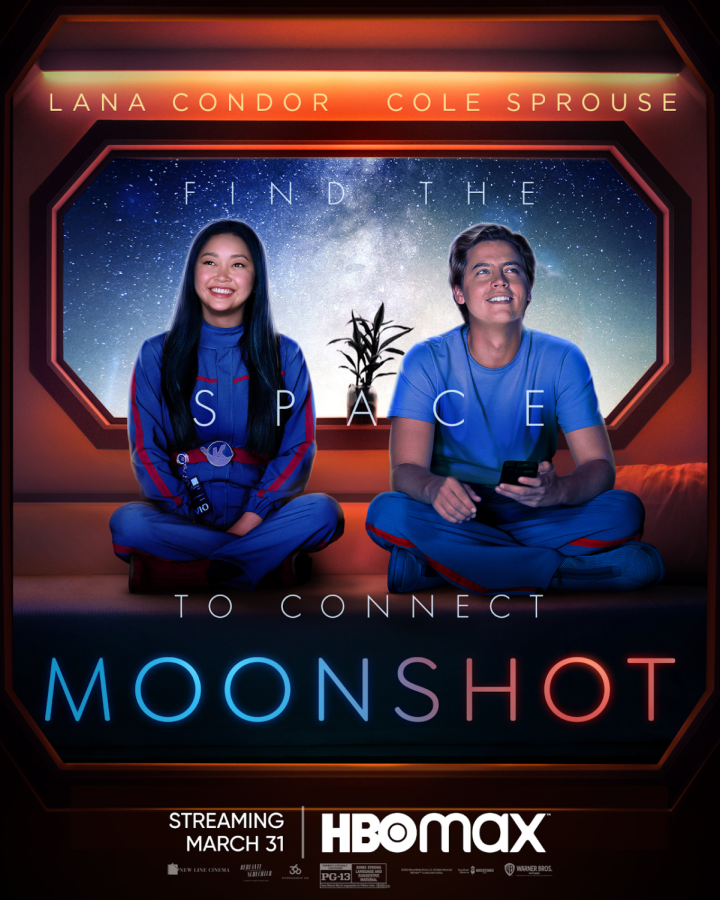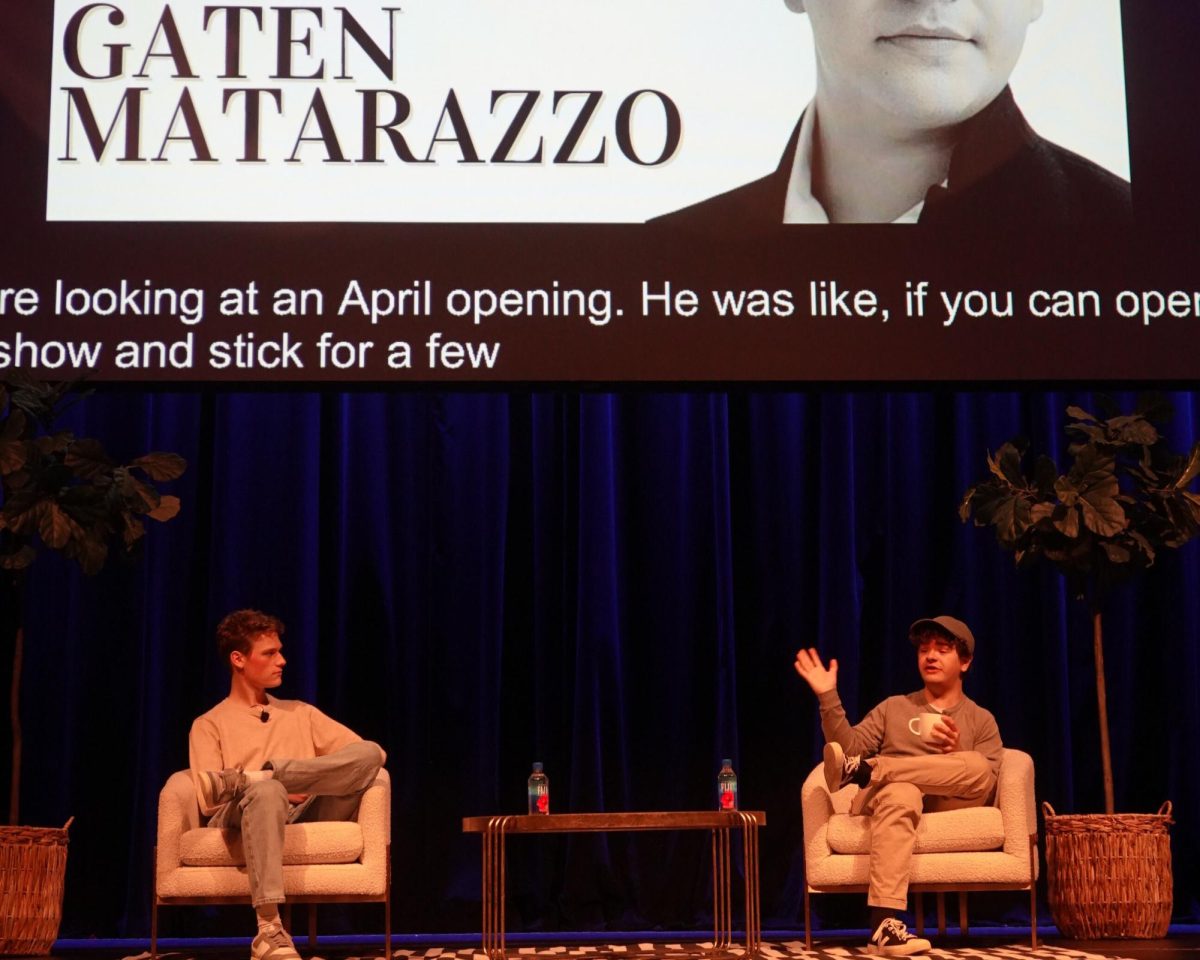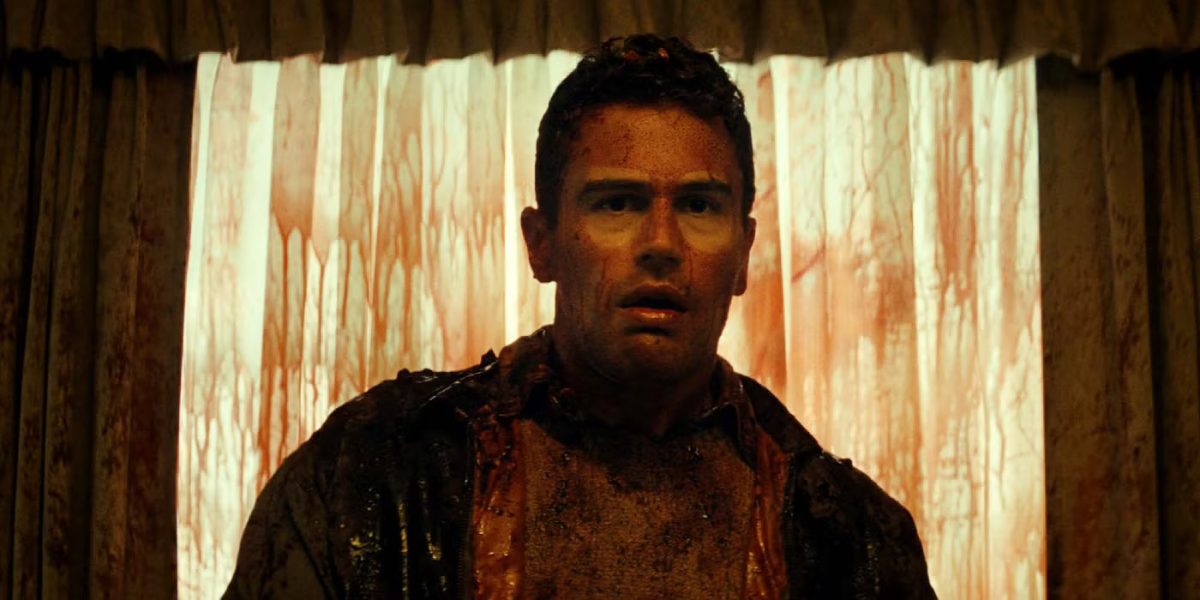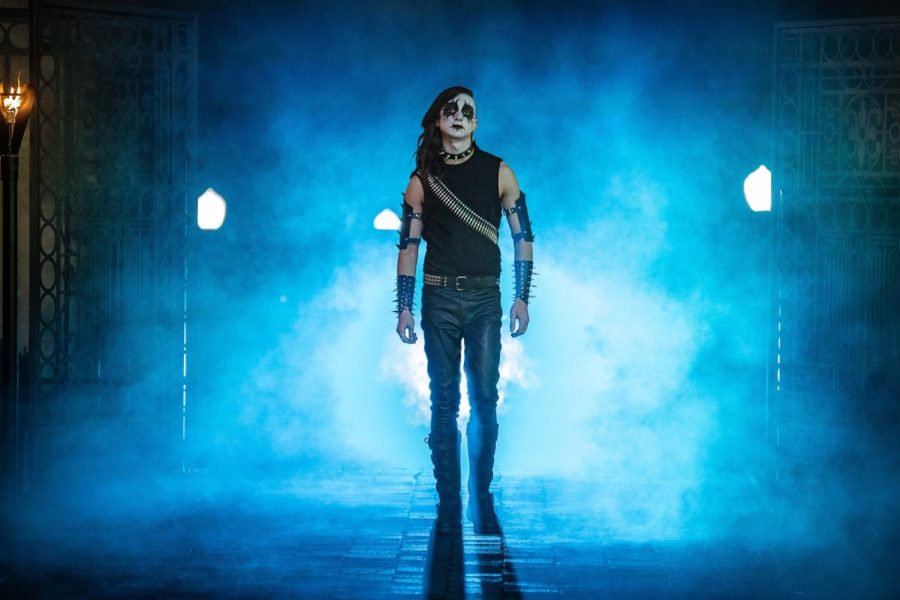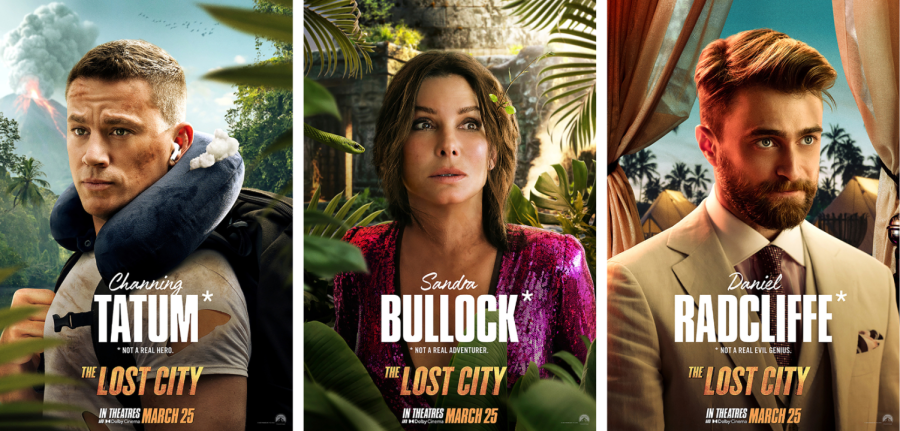Ladies, gents and everyone in between, a new coming-of-age rom-com just dropped—or rather, was launched, as half of the movie is spent on a rocket en route to Mars. This chimera of genres is HBO’s newest attempt at dipping their toes into the pool of cheesy, easy fun that Netflix has been swimming in lately and they have just the actors to star in it: “Suite Life” hooligan-turned-Riverdale detective Cole Sprouse and “To All The Boys” sweetheart Lana Condor. Surprisingly, the movie, performances included, was actually not half-bad.
“Moonshot” follows the interplanetary journey of two college students, Walt (Cole Sprouse), who is an aloof coffee shop barista, and Sophie (Lana Condor), a tech-savvy, wealthy genius—a new take on the Uptown Girl and the Downtown Man, if you will. Walt, believing he doesn’t fit in on the trash-filled, hopeless world that is the Earth of year 2049, has always dreamed of the now-terraformed Red Planet, while Sophie is getting tired of the light minutes that separate her and her long-distance boyfriend, a Mars resident.
Both have incentive to catch the upcoming rocket launch to Mars, but only one has the money to do so (but is afraid of flying, because of course she is), while the other has to accept his bajillionth rejection from the unique program that would pay for his trip. On top of that, Walt meets the “love of his life” Ginny (Emily Rudd) the day before she leaves for Mars, so the stakes are higher than ever. This eventually leads to Sophie unwillingly agreeing to hide Walt after he sneaks onto the ship. The only way to trick the authorities? Helping him impersonate her boyfriend, Calvin (Mason Gooding).
The movie’s leading duo, both recently known for their rom-com performances, actually manage to pull off the chemistry that slowly develops from annoying opposites to a like-minded couple. The Type A-Type B dynamic that we see a lot during the journey to Mars works well, drawing from Sprouse’s cute awkwardness and Condor’s hyperactive nervousness (and also cute awkwardness).
Sprouse and Condor talked about how they created their characters in a roundtable interview with college journalists (including yours truly). They seemed to perfectly mimic the dynamic they have in the movie, i.e. Sprouse playfully annoying Condor.
Condor remarked on how she modeled Sophie after her mom’s traits.
“My mom’s kind of Type A, she loves a plan, she loves to know the outcome of a situation,” Condor said, describing some of the characteristics she portrays in the movie.
Sprouse also seemed to know what he was doing with his character, noting that he wanted Walt to be super approachable. This explains why he dyed his hair blonde instead of the My Chemical Romance-esque emo black hair he sports in Riverdale—his words, not mine. He also joked about how he’s been doing Riverdale for the last 16 years. Poor guy.
“I wanted him to feel like your old best friend, the really annoying guy who used to hang out at the edge of the group,” Sprouse said. “I wanted him to come off as super boyish, as this is a light-hearted, easy-to-digest movie.”
I also have to admit that the movie did make me laugh every now and then. The humor was mostly situational and simple, but the way Sprouse and Condor (as well as the supporting cast) conveyed the jokes was pretty commendable. There’s this robot, Gary, who is the manager of the coffee shop Cole works at, and he admittedly made me laugh out loud with his absurd and rude demeanor.
The movie, and occasionally the humor, though, utilizes many of the genre’s tropes we have come to have a love-hate relationship with. The “run after her in the airport,” “the enemies to lovers,” “the climactic kiss,” “the soft boy and strong girl” and on and on. I, however, did not really mind this, because aside from its sci-fi setting and some more original existential undertones, the movie does not aim to break the boundaries of the genre. “Moonshot” utilizes the genre’s structural identity to a tee— not in a bad way, but in a slightly boring one. If it’s not broken, don’t fix it; just put a new layer of sci-fi paint on it.
Condor also mentioned that she learned a lot, such as how to work with green screens, within the movie’s fusion of romantic comedy and space adventure.
“It’s such a weird niche genre that I don’t even know if you can call it a genre,” Condor said. “Trying something new and learning something new was really attractive to me.”
Said existential undertones are actually pretty topical in our day and age. Walt believes the world is past saving at first, gazing upward to humanity’s next potential home. Sophie wants her boyfriend to come back to Earth because she does not want to discard the Pale Blue Dot just yet.
“Though we are delivering these messages with a spoonful of sugar—which is how this genre works—I think the movie really deals with a question that is going to be the biggest question of your generation,” Sprouse said, referring to his college-aged interviewers. “What should our focus be on resource-wise?”
Both the characters of “Moonshot” and we deal with these questions as we gradually get closer to flying to Mars and simultaneously destroying our planet. I’ll leave it to you to discover what the characters decide to do in the end.
“Moonshot” is the newest thing in rom-coms, but also uses the oldest tricks the genre has to offer. It is fun, lighthearted and raises some pretty important questions about how young people discover what they actually want in life as well as the current trajectory of humanity’s efforts to go interstellar. It is definitely cheesy and simple, but it doesn’t claim to be anything else.
“Moonshot” is streaming on HBO Max starting March 31.


